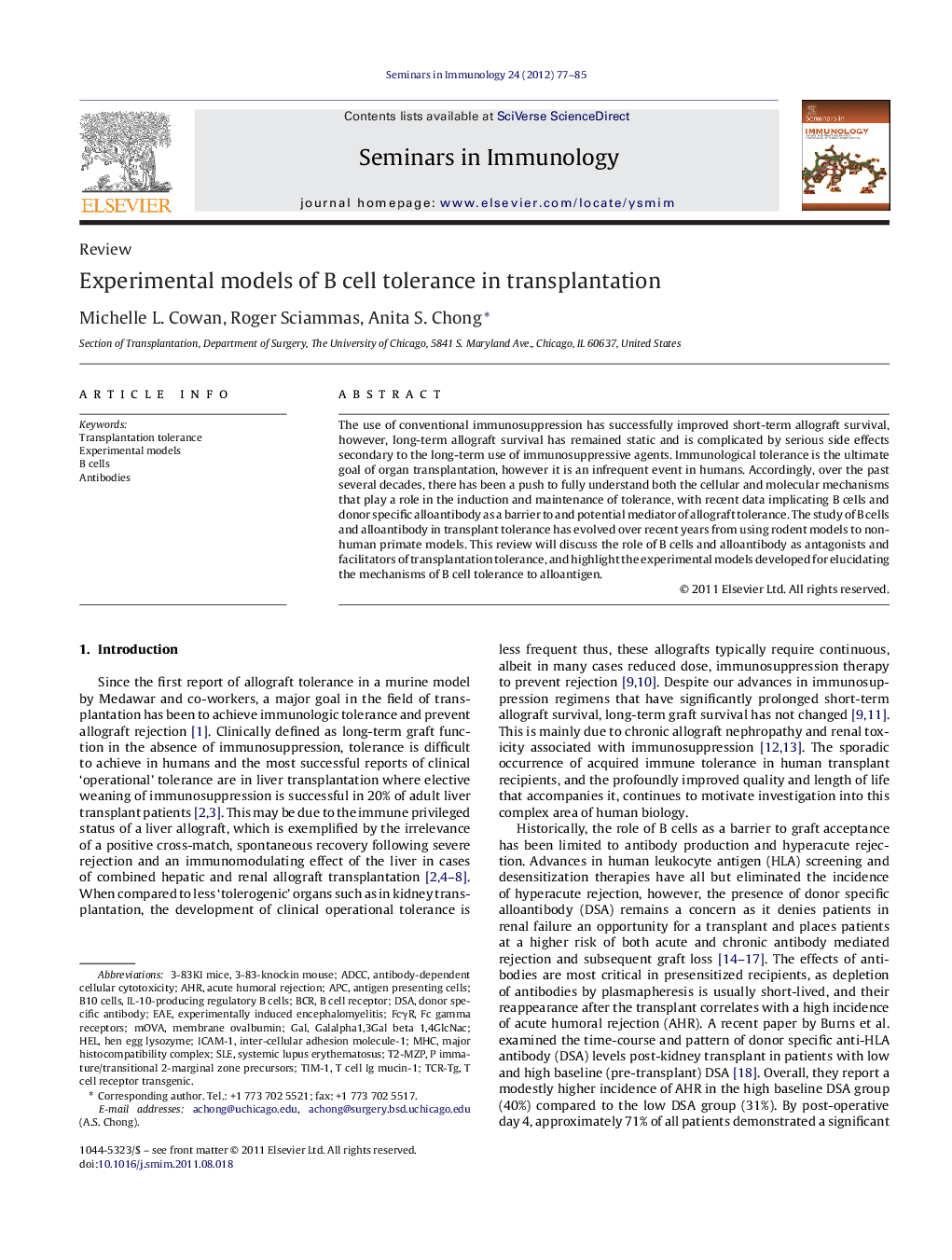| کد مقاله | کد نشریه | سال انتشار | مقاله انگلیسی | نسخه تمام متن |
|---|---|---|---|---|
| 3391555 | 1221059 | 2012 | 9 صفحه PDF | دانلود رایگان |

The use of conventional immunosuppression has successfully improved short-term allograft survival, however, long-term allograft survival has remained static and is complicated by serious side effects secondary to the long-term use of immunosuppressive agents. Immunological tolerance is the ultimate goal of organ transplantation, however it is an infrequent event in humans. Accordingly, over the past several decades, there has been a push to fully understand both the cellular and molecular mechanisms that play a role in the induction and maintenance of tolerance, with recent data implicating B cells and donor specific alloantibody as a barrier to and potential mediator of allograft tolerance. The study of B cells and alloantibody in transplant tolerance has evolved over recent years from using rodent models to non-human primate models. This review will discuss the role of B cells and alloantibody as antagonists and facilitators of transplantation tolerance, and highlight the experimental models developed for elucidating the mechanisms of B cell tolerance to alloantigen.
► Alloantibodies bind to graft endothelium to induce humoral rejection.
► Antibodies generate opsonins that enhance T cell-mediated rejection.
► Enrichment of B cells as a potential biomarker for tolerance to renal allografts.
► Evidence for a regulatory role by B cells in transplantation tolerance.
► Visualizing alloreactive B cells during tolerance will provide mechanistic insights.
Journal: Seminars in Immunology - Volume 24, Issue 2, April 2012, Pages 77–85